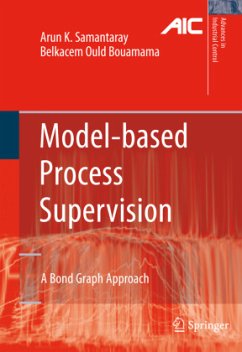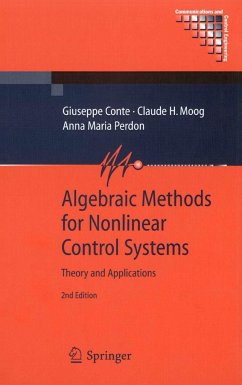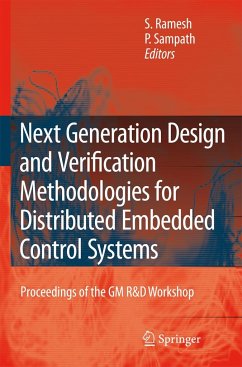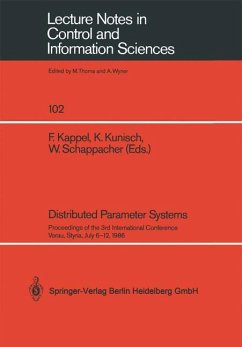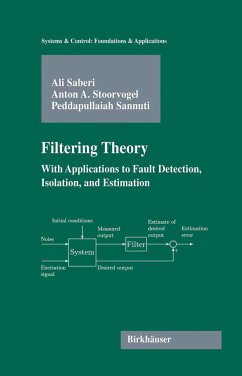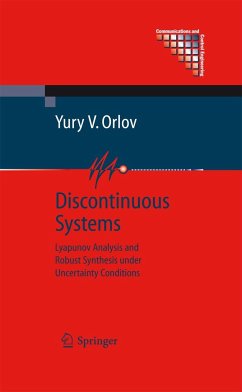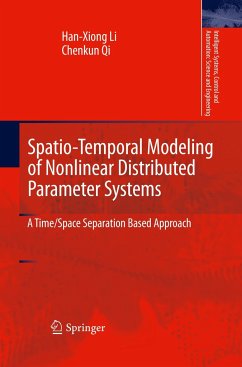
Spatio-Temporal Modeling of Nonlinear Distributed Parameter Systems
A Time/Space Separation Based Approach
Versandkostenfrei!
Versandfertig in 6-10 Tagen
38,99 €
inkl. MwSt.
Weitere Ausgaben:

PAYBACK Punkte
19 °P sammeln!
The purpose of this volume is to provide a brief review of the previous work on model reduction and identifi cation of distributed parameter systems (DPS), and develop new spatio-temporal models and their relevant identifi cation approaches.In this book, a systematic overview and classifi cation on the modeling of DPS is presented fi rst, which includes model reduction, parameter estimation and system identifi cation. Next, a class of block-oriented nonlinear systems in traditional lumped parameter systems (LPS) is extended to DPS, which results in the spatio-temporal Wiener and Hammerstein sy...
The purpose of this volume is to provide a brief review of the previous work on model reduction and identifi cation of distributed parameter systems (DPS), and develop new spatio-temporal models and their relevant identifi cation approaches.
In this book, a systematic overview and classifi cation on the modeling of DPS is presented fi rst, which includes model reduction, parameter estimation and system identifi cation. Next, a class of block-oriented nonlinear systems in traditional lumped parameter systems (LPS) is extended to DPS, which results in the spatio-temporal Wiener and Hammerstein systems and their identifi cation methods. Then, the traditional Volterra model is extended to DPS, which results in the spatio-temporal Volterra model and its identification algorithm. All these methods are based on linear time/space separation. Sometimes, the nonlinear time/space separation can play a better role in modeling of very complex processes.
Thus, a nonlinear time/space separation based neural modeling is also presented for a class of DPS with more complicated dynamics. Finally, all these modeling approaches are successfully applied to industrial thermal processes, including a catalytic rod, a packed-bed reactor and a snap curing oven. The work is presented giving a unifi ed view from time/space separation. The book also illustrates applications to thermal processes in the electronics packaging and chemical industry. This volume assumes a basic knowledge about distributed parameter systems, system modeling and identifi cation. It is intended for researchers, graduate students and engineers interested in distributed parameter systems, nonlinear systems, and process modelingand control.
In this book, a systematic overview and classifi cation on the modeling of DPS is presented fi rst, which includes model reduction, parameter estimation and system identifi cation. Next, a class of block-oriented nonlinear systems in traditional lumped parameter systems (LPS) is extended to DPS, which results in the spatio-temporal Wiener and Hammerstein systems and their identifi cation methods. Then, the traditional Volterra model is extended to DPS, which results in the spatio-temporal Volterra model and its identification algorithm. All these methods are based on linear time/space separation. Sometimes, the nonlinear time/space separation can play a better role in modeling of very complex processes.
Thus, a nonlinear time/space separation based neural modeling is also presented for a class of DPS with more complicated dynamics. Finally, all these modeling approaches are successfully applied to industrial thermal processes, including a catalytic rod, a packed-bed reactor and a snap curing oven. The work is presented giving a unifi ed view from time/space separation. The book also illustrates applications to thermal processes in the electronics packaging and chemical industry. This volume assumes a basic knowledge about distributed parameter systems, system modeling and identifi cation. It is intended for researchers, graduate students and engineers interested in distributed parameter systems, nonlinear systems, and process modelingand control.





